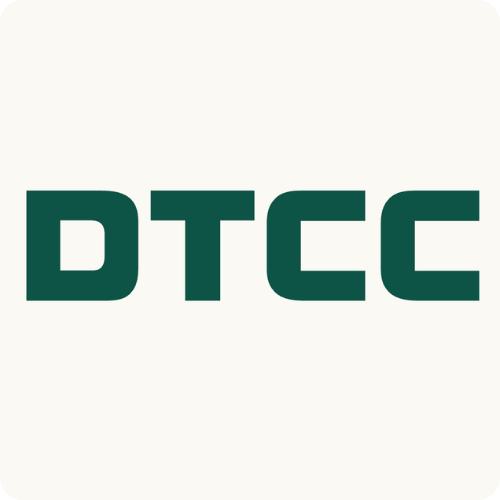
Hedera Coinflip
Hedera Coinflip is a decentralized application (dApp) built on the Hedera network that offers a simple, "double or nothing" style betting game. Users can wager HBAR for a 50/50 chance to double their bet. The platform's core value proposition lies in its commitment to transparency and fairness, which is achieved through its unique use of the Hedera Consensus Service (HCS).
The fairness of each flip is guaranteed by a provably fair mechanism that prevents manipulation by either the player or the platform operator. When a user initiates a flip, a combination of a server-provided seed and a client-provided seed is submitted to the Hedera network via HCS. The immutable and unpredictable consensus timestamp assigned to this transaction by the decentralized network is then used to determine the outcome. Because this timestamp cannot be influenced or known in advance, the result of the coin flip is truly random and publicly verifiable.
A small percentage of each wager contributes to a progressive jackpot, which can be won by players who achieve a specific, consecutive number of wins. This jackpot serves as the platform's primary revenue model while also creating an exciting, high-reward target for dedicated players.
Project Information
Related Projects

The Depository Trust & Clearing Corporation (DTCC) provides post-trade clearing and settlement services that ensure the stability and efficiency of trading activity. As one of the premier financial market infrastructures over the past 50 years, DTCC processes trillions of dollars in securities transactions daily, offering a range of services that automate, centralize, and standardize the processing of financial transactions to mitigate risk and reduce costs.
DTCC’s Digital Assets is a business unit dedicated to bridging the gap between traditional financial infrastructure and the emerging digital asset ecosystem. Its key services include the DTCC Digital Launchpad, an open ecosystem for collaboration on digital asset adoption, DTCC ComposerX, an end-to-end platform for managing the entire lifecycle of digital assets, and the Collateral AppChain, which provides scalable, tokenized collateral management.
As a founding premier member of the Linux Foundation's LF Decentralized Trust alongside Hedera, DTCC is actively involved in shaping the future of open-source, decentralized technologies.

Quarter Homes is a real estate technology company that modernizes vacation home ownership through a fractional, co-ownership model. It aims to make owning a second home more accessible and affordable by allowing up to four parties to collectively purchase and own a property. Quarter Homes manages the entire lifecycle of the property, including all legal, financial, and property management complexities, to provide a seamless, hassle-free experience.
The company’s innovative model incorporates the Hedera blockchain network, which underpins its operational framework. For each property, a unique LLC is established, and the legal ownership interest is divided into fractions represented as non-fungible tokens (NFTs) on the Hedera Token Service (HTS). This provides each owner with a verifiable, digital proof of ownership.
Quarter Homes leverages the Hedera Consensus Service (HCS) to create a transparent and immutable log of all activities associated with the property. This includes governance, maintenance activities and scheduling, ensuring all parties have a trusted and shared view of the property's status and history.

Merkle Science is an artificial intelligence-powered blockchain analytics, threat detection, and predictive risk platform. It provides a comprehensive suite of solutions to detect, investigate, and prevent illicit on-chain activities.
Its detection and mitigation tools go beyond simple identification and blacklisting to provide actionable intelligence for a broad range of clients. These include cryptocurrency exchanges, DeFi platforms, NFT marketplaces, financial institutions, and government and law enforcement agencies.
Through its “Compass" and “Tracker” tools, Merkle Science offers predictive risk monitoring and regulatory compliance (KYC/AML/CFT) for automated forensic investigations enabling cross-chain tracing capabilities. Its “Onchain Pulse” service also provides a deep data platform for AI-powered analytics.
Merkle Science’s Know Your Blockchain Business (KYBB) platform leverages comprehensive risk profiles that combine proprietary on and off-chain data to facilitate analytical data-based vendor due diligence.
Expanding beyond analysis and mitigation, Merkle Science also offers training and certification programs for professionals conducting operations in the digital asset space. These include MiCar compliance certification for stablecoin issuers, AML and CFT certification, and cryptocurrency investigation certifications.

LeewayHertz is a software development company with a strong focus on emerging technologies. Headquartered in San Francisco, the company has a global team of developers and designers who build custom digital platforms for a wide range of clients, from Fortune 500 companies to startups.
The firm offers a comprehensive suite of services, with a particular emphasis on AI development, Web3, and blockchain solutions. Its expertise spans a variety of technologies, including IoT, generative AI, and mobile app development. LeewayHertz provides end-to-end solutions, from initial consulting and feasibility analysis to the design, development, and deployment of enterprise-grade applications.
LeewayHertz has a deep and established integration with the Hedera network. It offers a full range of Hedera Hashgraph development services, including custom dApp development, smart contract creation, and the tokenization of assets using the Hedera Token Service (HTS). Its team includes Hedera Hashgraph ambassadors and has a proven track record of building and deploying solutions on the network. This expertise allows them to provide their clients with secure, scalable, and high-performance applications that leverage the unique advantages of the Hedera network.
